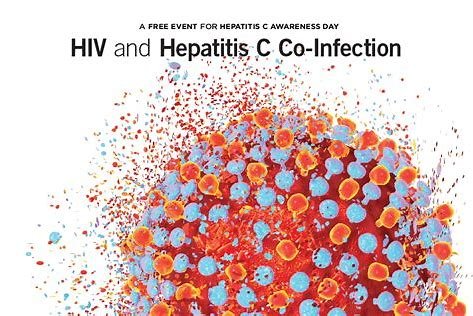Gilead to present data at APASL 2023 on effective models for monitoring and treating hepatitis C and efficacy of antiviral treatments for HIV-1 and HBV-coinfected adults
15 February 2023 | Wednesday | News

Image Source : Public Domain
-- Study recommends a simplified strategy for baseline testing and minimal monitoring for treatment of hepatitis C virus (HCV) infection with DAA Therapies --
-- Review of implementation science projects toward HCV Elimination by 2030 in Asia proved effective in improving patient outcomes --
-- Efficacy and safety demonstrated with Bictegravir/Emtricitabine/
The data will be presented at the 32nd Conference of the Asian Pacific Association for the Study of the Liver (APASL 2023), to be held 15 – 19 February 2023 in Taipei, Taiwan.
“The elimination of viral hepatitis as a major public health threat by 2030 continues to be an ongoing challenge globally, with only 11 countries on track to achieve HCV elimination targets. As we emerge from the COVID-19 pandemic, there is an urgent need to ramp up screening efforts and strengthen linkage to care,” said Ming-Lung Yu, Senior Vice President of National Sun Yat-sen University, Kaohsiung, Taiwan.
In a review of 120 HCV elimination programs supported by Gilead in Asia – of which 18 have been completed or are ongoing through July 2022 – a total of 175,192 people were screened, 6,287 were diagnosed with HCV and 3,768 received treatment. In eight studies, a simplified screening and linkage to care was investigated, achieving antiviral response rates comparable to standard practice. The review also concluded that adopting and adapting effective and simplified strategies is demonstrably contributing to increasing treatment numbers and improving patient outcomes, thus contributing to HCV elimination in Asia.
In a separate non-interventional primary survey in Taiwan which involved physicians, case managers and patients, 58% of physicians surveyed suggested simplifying or removing the requirement for the NHIA required VPN system, of which 26% feel is a barrier to prescribing Direct-Acting Antivirals (DAAs). 28% of patients reported that taking time off work for routine follow-up visits or to pick up medication were major barriers to HCV treatment. The survey underscores that the adoption of a simplified strategy for baseline testing and minimal monitoring for treatment of HCV infection with DAA therapies is critical to accelerate HCV elimination success in Taiwan and globally.
“To achieve WHO’s goals to eliminate viral hepatitis, medical societies have endorsed simplified strategies which minimize monitoring of uncomplicated HCV infection and could reduce the cost of burden to health systems. It is important to understand the experience and recommendations from key stakeholders in the HCV cascade of care to continue enhancing national health policies,” said Chun-Jen Liu, Professor and Head the Hepatitis Research Center, National Taiwan University Hospital.
Additional data presented at the conference include interim findings from a global Phase 3 study evaluating B/F/TAF vs. Dolutegravir (DTG) + Emtricitabine/Tenofovir Disoproxil Fumarate (F/TDF), DTG+F/TDF, in adults with HIV-1/HBV coinfection initiating treatment. The study includes several sites in Asia, which is a geographic region where both viruses are endemic and HIV/HBV coinfection rates can reach 25%. After 48 weeks of treatment, study participants who initiated treatment with B/F/TAF or DTG+F/TDF had similarly high rates of HIV-1 suppression (95 vs 91%), with B/F/TAF resulting in superior HBV DNA suppression (63% vs 43%) and hepatitis B e-antigen (HBeAg) seroconversion (23% vs 11%). The study demonstrates that B/F/TAF is a safe and effective treatment for people with HIV-1/HBV-Coinfection. The study will continue in a blinded fashion through Week 96 to determine longer-term safety and efficacy.
“Continued scientific innovation and collaboration has never been more important than now to address the needs of HCV patients in the Asia region. We are pleased to see a number of Gilead supported initiatives help support elimination by adopting a simplified and collaborative approach to HCV screening and treatment. Beyond HCV, we keep looking new data generation in viral diseases. The proven efficacy and safety of Bictegravir/Emtricitabine/Tenofovir Alafenamide (B/F/TAF) through a phase-3 randomized trial strengthens evidence of TAF treatment for ARV regimes for people with HIV-1/HBV coinfection with resulting superiority in HBV DNA suppression compared to control arm.” said Zig Lang, Vice President, Medical Affairs International, Gilead Sciences.
Abstracts presented at APASL 2023 are as follows:
|
FP03-14 |
|
|
FP03-15 |
|
|
PPB-030 |
|
Most Read
- How Does GLP-1 Work?
- Innovations In Magnetic Resonance Imaging Introduced By United Imaging
- Management of Relapsed/Refractory Multiple Myeloma
- 2025 Drug Approvals, Decoded: What Every Biopharma Leader Needs to Know
- BioPharma Manufacturing Resilience: Lessons From Capacity Expansion and Supply Chain Resets from 2025
- APAC Biopharma Review 2025: Innovation, Investment, and Influence on the Global Stage
- Top 25 Biotech Innovations Redefining Health And Planet In 2025
- The New AI Gold Rush: Western Pharma’s Billion-Dollar Bet on Chinese Biotech
- Single-Use Systems Are Rewiring Biopharma Manufacturing
- The State of Biotech and Life Science Jobs in Asia Pacific – 2025
- Asia-Pacific Leads the Charge: Latest Global BioSupplier Technologies of 2025
- Invisible Threats, Visible Risks: How the Nitrosamine Crisis Reshaped Asia’s Pharmaceutical Quality Landscape
Bio Jobs
- Sanofi Turns The Page As Belén Garijo Steps In And Paul Hudson Steps Out
- Global Survey Reveals Nearly 40% of Employees Facing Fertility Challenges Consider Leaving Their Jobs
- BioMed X and AbbVie Begin Global Search for Bold Neuroscience Talent To Decode the Biology of Anhedonia
- Thermo Fisher Expands Bengaluru R&D Centre to Advance Antibody Innovation and Strengthen India’s Life Sciences Ecosystem
- Accord Plasma (Intas Group) Acquires Prothya Biosolutions to Expand Global Plasma Capabilities
- ACG Announces $200 Million Investment to Establish First U.S. Capsule Manufacturing Facility in Atlanta
- AstraZeneca Invests $4.5 Billion to Build Advanced Manufacturing Facility in Virginia, Expanding U.S. Medicine Production
News











